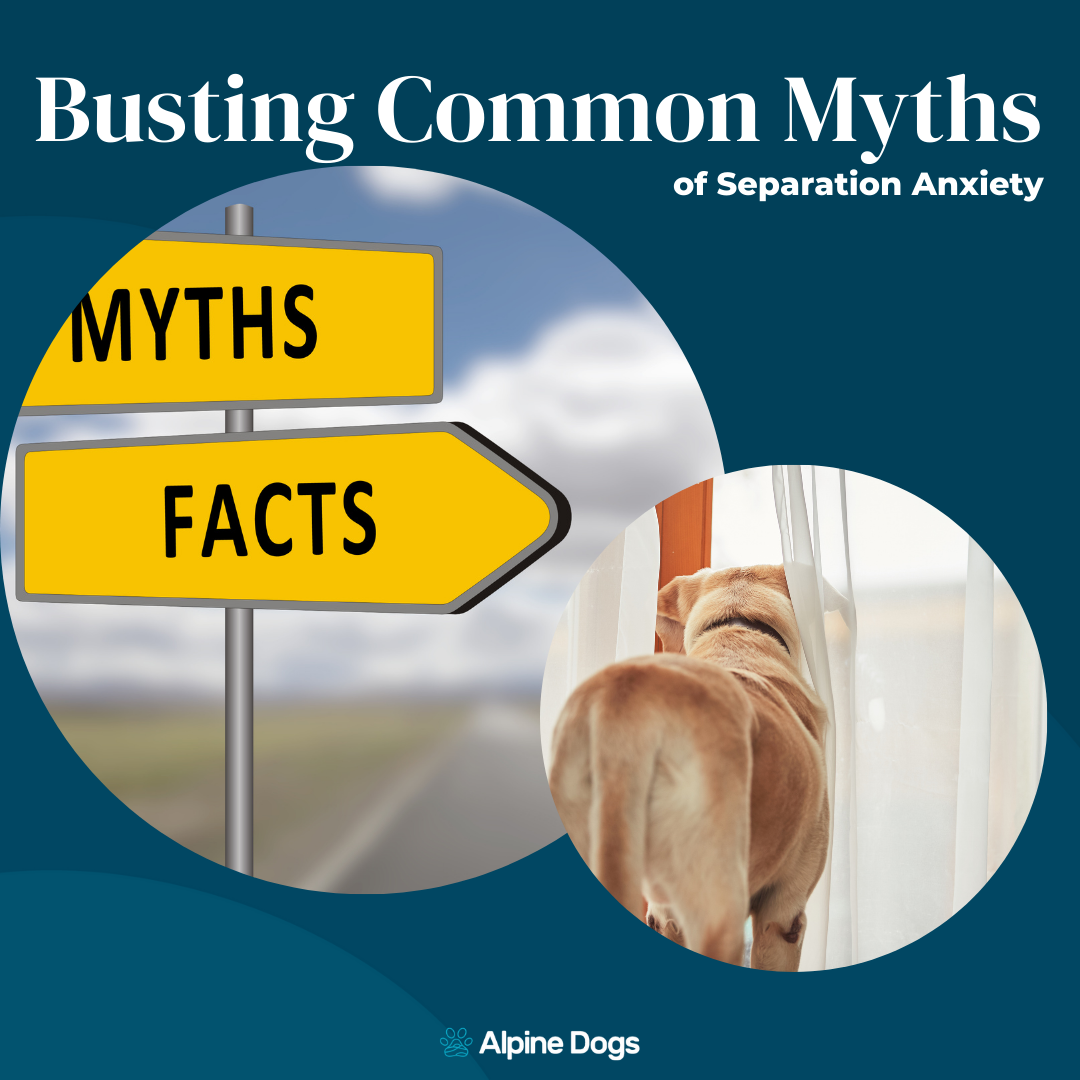Separation anxiety? Here’s why you should talk to your vet.
Hiring a trainer is the first line of attack for most dog guardians when attempting to resolve a problem like separation anxiety. It’s important to make sure you are hiring a professional qualified to take on this complex panic disorder. Look for a CSAT designation, and if the trainer is suggesting to meet in person, that’s a red flag!
In addition to hiring a qualified separation anxiety dog trainer, involving your vet in the process is also important.
Helping the whole dog
Separation anxiety doesn’t exist in a silo; it’s a complex problem with many influencing factors, your dog’s health being one of them. While you may have been religious about taking your dog for their annual wellness exams, many pet parents don’t even think about discussing their dog’s behaviour with their vet at all. But as any qualified separation anxiety trainer will tell you, training alone is often not enough to address the whole picture. If your dog is suffering from undiagnosed pain, discomfort or illness, we usually will not see progress in our gradual exposure protocol.
Have you ruled out pain or discomfort?
Ideally, an annual wellness exam should catch any obvious signs of pain or discomfort, but this isn’t always the case. Dogs are good at masking pain, and unless there is an easily observable limp or other physical symptom, it can be easy to miss on a physical exam. Furthermore, dogs often experience high levels of stress at vet visits, which means it can be difficult for the veterinarian to see how they move and behave naturally. For this reason, it is often recommended to take a video of your dog when they are comfortable at home or on a walk so your vet can see how the problem manifests in day-to-day life.
Even if you don’t notice physical symptoms in your dog, you may notice that they are having trouble progressing with training, that they are regressing, or that their behaviour is suddenly out of the ordinary. Behavioural changes are often the only symptoms of something wrong, so it’s important to check in with your vet if you notice big changes to your dog’s personality or habits.
If pain is suspected, but no obvious physical symptoms are identified, your vet may recommend a “pain trial”. During a pain trial, a short course of pain medication is prescribed to give to your dog. Once your dog is on the pain meds, you will observe any changes to their behaviour. If we see a happier, more relaxed dog and/or if their separation anxiety or other behavioural challenges start to improve on the medication, we can assume that pain was part of the equation and that the medication is helping them feel better. Your vet may also recommend further diagnostic testing, such as radiographs, to identify the origin of the pain.
Another common medical roadblock that I see often in my separation anxiety clients is issues related to the dog’s gastrointestinal system. Dogs with gut health issues may present with chronic diarrhea, vomiting, reflux or a combination. If your dog has any recurrent G.I. symptoms, your vet may recommend trials of different foods, proteins or elimination diets to determine specific triggers for your dog’s condition. You may also be referred to an internal medicine specialist for further testing, such as an endoscopy or ultrasound.
Itchy skin is another common medical issue among dogs in my practice. As you can imagine, being itchy all the time is no fun, and will make your dog more irritable than they would be otherwise. Chronic scratching, licking and biting at the skin can lead to inflamed skin and open sores, which can be very painful. These dogs also can be prone to ear infections. Like gut issues, skin problems typically require further diagnostics to determine if it’s diet, environmental factors or something else causing the problem.
Anxiety Support
Even if we rule out pain or discomfort as best we can, you still should make a plan to talk to your vet about your dog’s separation anxiety. Your vet will appreciate having this information included in your dog’s file, and it may inform how they care for your pet when in the clinic (e.g., not leaving your dog alone in a kennel like they usually would). Your vet also may prescribe anxiolytic medication to help your dog feel better, either to be given a few hours before absences or training sessions or to be taken daily on an ongoing basis.
Consulting a Veterinary Behaviourist
A veterinary behaviourist (VB) is a veterinarian who has completed additional schooling to specialize in treating behavioural concerns. Veterinary behaviourists are experts in treating behaviour through a medical lens. They are especially helpful for dogs with both medical and behavioural symptoms, for dogs with multiple behavioural concerns or for those who have not had success with help from their general practice veterinarian. You can ask your vet for a referral to a veterinary behaviourist at any time, and typically, both direct consultations with the VB and “vet-to-vet” consultations are available.
In Conclusion
If your dog is suffering from separation anxiety, please know there are many options for support at your disposal. In fact, my clients often have a whole team behind them! Collaboration between experts is an important part of a good plan, and you can always ask your trainer for recommendations for veterinarians or veterinary behaviourists who may be best suited to help you and your dog.
About the Author
Saundra Clow is a multi-certified separation anxiety trainer who serves clients internationally online. She has years of experience working with dogs of all types and breeds and is passionate about helping dogs feel comfortable home alone.
